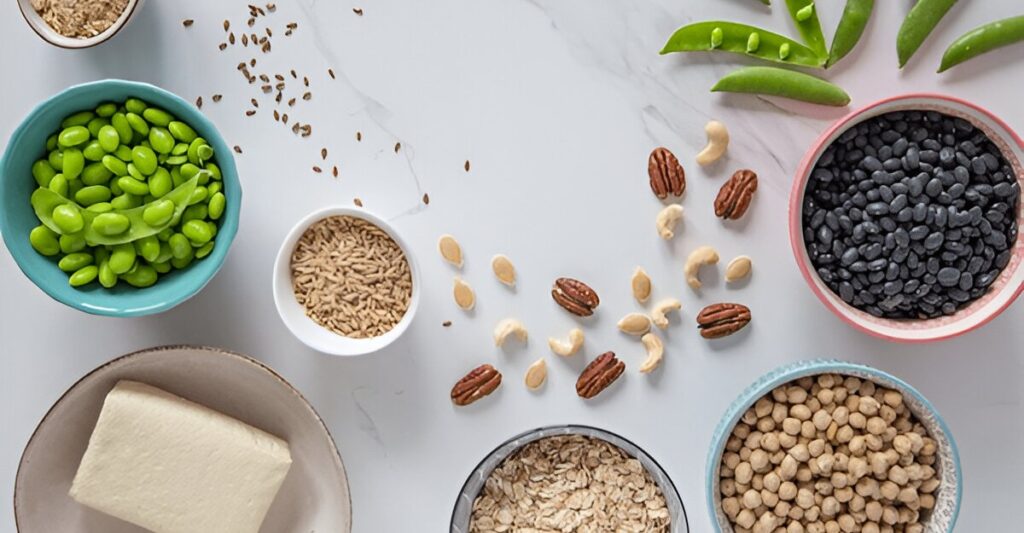Inflammation is your body’s natural response to injury or infection, but when it becomes chronic, it can lead to serious health issues like heart disease, arthritis, and diabetes. Enter omega-3 fatty acids, powerful nutrients known for their ability to combat inflammation and promote overall wellness. The role of omega-3s in inflammation reduction has been extensively studied, showing promising benefits for both prevention and management of chronic conditions. This article explores the science behind omega-3s, how they reduce inflammation, and practical ways to incorporate them into your diet for better health.
What Are Omega-3 Fatty Acids?
Omega-3s are essential polyunsaturated fats that your body cannot produce on its own, meaning you must get them from food or supplements. The three main types are:
- ALA (Alpha-Linolenic Acid): Found in plant sources like flaxseeds and walnuts.
- EPA (Eicosapentaenoic Acid): Found in fatty fish and algae, known for its anti-inflammatory properties.
- DHA (Docosahexaenoic Acid): Also in fatty fish and algae, crucial for brain and heart health.
The role of omega-3s in inflammation reduction primarily stems from EPA and DHA, which are more bioactive than ALA. These fatty acids influence the body’s inflammatory pathways, making them a cornerstone of a health-focused diet.
How Omega-3s Reduce Inflammation
The science behind the role of omega-3s in inflammation reduction lies in their ability to modulate the body’s inflammatory response. Here’s how they work:
1. Balancing Pro- and Anti-Inflammatory Molecules
Omega-3s compete with omega-6 fatty acids (found in processed foods and vegetable oils) in the body. While omega-6s promote inflammation, omega-3s produce anti-inflammatory molecules called resolvins and protectins. These compounds actively resolve inflammation, reducing its intensity and duration, according to research in The Journal of Immunology.
2. Reducing Inflammatory Cytokines
EPA and DHA lower the production of pro-inflammatory cytokines, proteins that amplify inflammation. Studies in The American Journal of Clinical Nutrition show that omega-3 supplementation decreases levels of cytokines like TNF-alpha and IL-6, linked to chronic diseases.
3. Improving Cell Membrane Function
Omega-3s integrate into cell membranes, making them more fluid and responsive. This enhances cell signaling and reduces the overactive inflammatory responses seen in conditions like arthritis or cardiovascular disease.
4. Supporting Gut Health
A healthy gut microbiome reduces systemic inflammation. Omega-3s promote the growth of beneficial gut bacteria, which produce short-chain fatty acids that further dampen inflammation, per Gut Microbes research.
5. Lowering Oxidative Stress
Chronic inflammation often pairs with oxidative stress, where free radicals damage cells. Omega-3s act as antioxidants, neutralizing free radicals and protecting tissues, as noted in Free Radical Biology and Medicine.
The role of omega-3s in inflammation reduction is most effective when omega-3 intake is balanced with lower omega-6 consumption, ideally at a ratio of 1:4 or closer.
Health Benefits of Omega-3s for Inflammation
By reducing inflammation, omega-3s offer wide-ranging benefits:
- Heart Health: Lower inflammation reduces artery plaque buildup, cutting heart disease risk (The Lancet).
- Joint Health: Omega-3s alleviate joint pain and stiffness in rheumatoid arthritis (Arthritis & Rheumatology).
- Brain Health: Reduced neuroinflammation supports cognitive function and may lower Alzheimer’s risk (Neurobiology of Aging).
- Metabolic Health: Omega-3s improve insulin sensitivity, reducing inflammation-driven diabetes risk.
- Athletic Recovery: Lower muscle inflammation speeds recovery post-exercise (Journal of Sports Sciences).
How to Incorporate Omega-3s into Your Diet
To harness the role of omega-3s in inflammation reduction, aim to include them regularly in your diet. Here are practical strategies:
1. Eat Fatty Fish Regularly
Fatty fish are the richest sources of EPA and DHA, making them a top choice for inflammation reduction.
Best Fish Choices:
- Salmon
- Mackerel
- Sardines
- Anchovies
- Herring
Pro Tip: Aim for 2-3 servings (3-4 ounces each) of fatty fish per week, as recommended by the American Heart Association.
2. Include Plant-Based Omega-3 Sources
For vegetarians or those who don’t eat fish, ALA-rich foods provide omega-3s, though conversion to EPA/DHA is limited.
Top Plant Sources:
- Flaxseeds (ground or oil)
- Chia seeds
- Walnuts
- Hemp seeds
Pro Tip: Grind flaxseeds before eating to improve ALA absorption.
3. Consider Omega-3 Supplements
If dietary intake is low, supplements like fish oil, krill oil, or algae oil (vegan-friendly) can boost omega-3 levels.
Supplement Tips:
- Aim for 1-2 grams of combined EPA/DHA daily for general health, or 2-4 grams for specific inflammatory conditions (consult a doctor).
- Choose high-potency supplements with third-party testing (e.g., NSF or USP certified).
- Take with a fat-containing meal to enhance absorption.
Pro Tip: Store supplements in a cool, dark place to prevent rancidity.
4. Reduce Omega-6 Intake
High omega-6 intake from processed foods (e.g., corn oil, soybean oil) can counteract omega-3 benefits. Cook with olive oil or avocado oil and limit fried or packaged foods.
Pro Tip: Check labels for hidden omega-6 sources in snacks or dressings.
5. Combine with an Anti-Inflammatory Diet
Pair omega-3s with a diet rich in fruits, vegetables, whole grains, and nuts to amplify inflammation reduction. The Mediterranean diet, high in omega-3s and antioxidants, is a proven model (Nutrients).
Pro Tip: Add turmeric or ginger to meals for extra anti-inflammatory benefits.
Sample Omega-3-Rich Meal Plan
Here’s a one-day meal plan to support the role of omega-3s in inflammation reduction:
- Breakfast: Chia seed pudding with almond milk, walnuts, and blueberries.
- Snack: A handful of almonds and an orange.
- Lunch: Grilled salmon with quinoa, roasted Brussels sprouts, and olive oil dressing.
- Snack: Flaxseed smoothie with spinach, banana, and hemp seeds.
- Dinner: Sardine salad with mixed greens, avocado, and a lemon-flaxseed oil dressing.
Considerations and Cautions
While omega-3s are generally safe, high doses (above 4 grams/day) may increase bleeding risk or interact with medications like blood thinners. Consult a healthcare provider before starting supplements, especially if you have medical conditions. Choose sustainable fish sources to minimize environmental impact, and opt for low-mercury options like sardines or wild-caught salmon. For supplements, verify purity to avoid contaminants.
Final Thoughts
The role of omega-3s in inflammation reduction is a game-changer for health, offering protection against chronic diseases and enhancing recovery. By incorporating fatty fish, plant-based sources, or high-quality supplements, you can harness these powerful fats to combat inflammation and boost well-being. Start small—add a serving of salmon or a spoonful of flaxseeds to your week—and build from there. With consistent effort, omega-3s can become a cornerstone of your anti-inflammatory lifestyle, paving the way for a healthier, more vibrant you.


